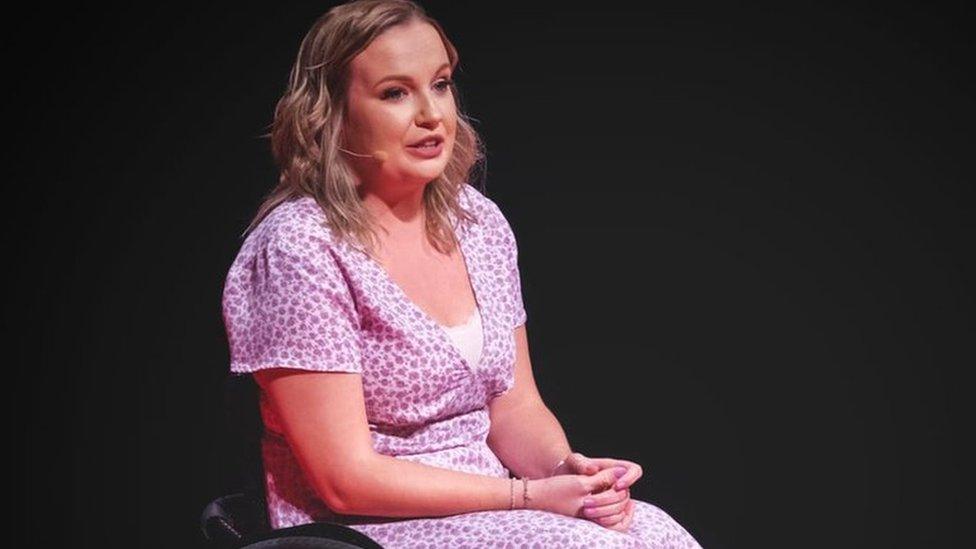Covid: Sajid Javid defends timing of end to Covid rules and free tests
- Published
- comments
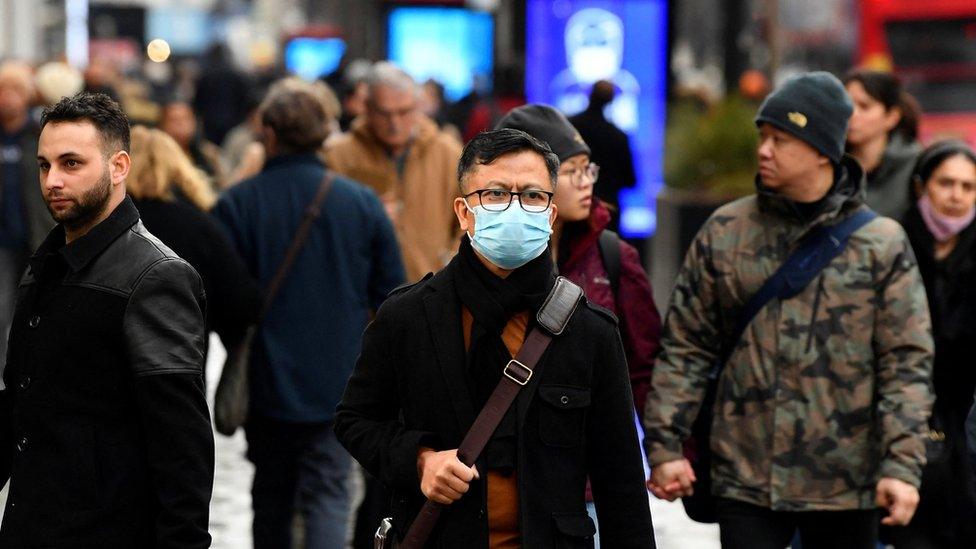
The rest of the UK has not yet chosen to follow England's plan on Covid restrictions
Health Secretary Sajid Javid has insisted the time is right to end all Covid restrictions and free mass testing in England.
All rules including the legal duty to self-isolate will end this week - and free tests will stop for most in April.
Mr Javid hailed it as a "historic moment" but warned the country must be ready for more variants in the future.
However, doctors, opposition parties and charities representing vulnerable people have criticised the changes.
School leaders have also said scrapping tests in schools - a move that took effect immediately on Monday - might cause more disruption to pupils.
The rest of the UK has not yet chosen to follow England's plan. Scotland plans to end all legal restrictions on 21 March, while Wales said scrapping free tests was reckless.
In a news conference on Monday, Prime Minister Boris Johnson said Covid was "not going away" - but the UK had passed the peak of Omicron with cases and hospital admissions falling.
One in 22 people in the UK had Covid last week, according to the latest Office for National Statistics infection survey - and a further 38,000 UK cases were announced on Monday.
Asked on BBC Breakfast whether it was the right time to change the rules, Mr Javid replied: "Yes it is."
"Yesterday was a historic day in our fight against this pandemic," he said - but warned the virus was "still out there" and while we might want to be done with it "it's certainly not done with us".
It is likely new variants will emerge over the next couple of years, Mr Javid said, adding that while we cannot say if they will be dangerous or not "we have to be ready for that".
He also defended scrapping free tests on 1 April, saying it did not make sense to continue them indefinitely and they would be targeted at vulnerable settings and people.

What is changing in England?

From 21 February: the government dropped guidance for staff and students in most education and childcare settings to undertake twice weekly asymptomatic testing
From Thursday 24 February:
People who test positive for Covid will no longer be legally required to self-isolate
But they will still be advised to stay at home and avoid contact with others for at least five full days
Routine contact tracing will end, so fully vaccinated close contacts and those under 18 will no longer be legally required to test daily for seven days
The £500 self-isolation support payment for people on low incomes who test positive for Covid will no longer be available
Covid provisions for increased statutory sick pay will apply for a further month
From 1 April:
Free mass symptomatic and asymptomatic testing for the general public will end, and will instead be targeted towards the most vulnerable
People with Covid symptoms will be asked to exercise personal responsibility when deciding whether to stay at home - until then they are still advised to do so
Current government guidance on Covid passports will end and it will no longer recommend venues use the NHS Covid pass

Asked whether NHS staff would also get free tests - after calls for clarity from doctors and medical groups - Mr Javid said they would.
But he said it would be a decision for the NHS, suggesting the funding would need to come out of existing NHS budgets.
There had been a row within government over whether any extra cash was available for future testing. Mr Javid told the BBC there had been a "debate" but the cabinet had came to an agreement.
'Headlong rush'
The government's plan has been met with criticism from a range of groups - with many saying it was too soon.
Labour leader Sir Keir Starmer said it would leave the nation "vulnerable", while doctors' union the British Medical Association said without free testing people would not be able to make a judgement call over whether to isolate.
Teaching unions warned it could cause disruption to pupils, with Geoff Barton, general secretary of the Association of School and College Leaders, saying the announcement felt like a "headlong rush", not a "sensibly phased approach".
And medically vulnerable people have said it now feels more dangerous to leave their homes.
On Tuesday Scotland's First Minister Nicola Sturgeon announced that, while people would still be advised to wear masks in shops and on public transport, all legal requirements would end on 21 March.
But she called for clarity about how the UK-wide testing system would operate in the future.
Mr Javid said if Scotland chose to continue with testing, "they would pay for it in the same way we pay for the decisions we take in England".
The Welsh government will review its own laws next week but has already indicated it could scrap remaining restrictions at the end of March.
And Northern Ireland's health minister Robin Swann said his department would "carefully consider" England's plan.
Boris Johnson has announced the end of coronavirus restrictions in England
From 1 April free tests will be axed, with exceptions for social care staff and those deemed most at risk.
To prevent the stockpiling of free lateral flow tests, people will only be able to order a box of tests every three days instead of every 24 hours.
Once tests are no longer free, ministers expect a market for lateral flow tests to develop, with individual tests expected to cost a few pounds.
High street retailer Boots has already set out plans to sell tests at a cost of £2.50 - or £12 for five - from early March.
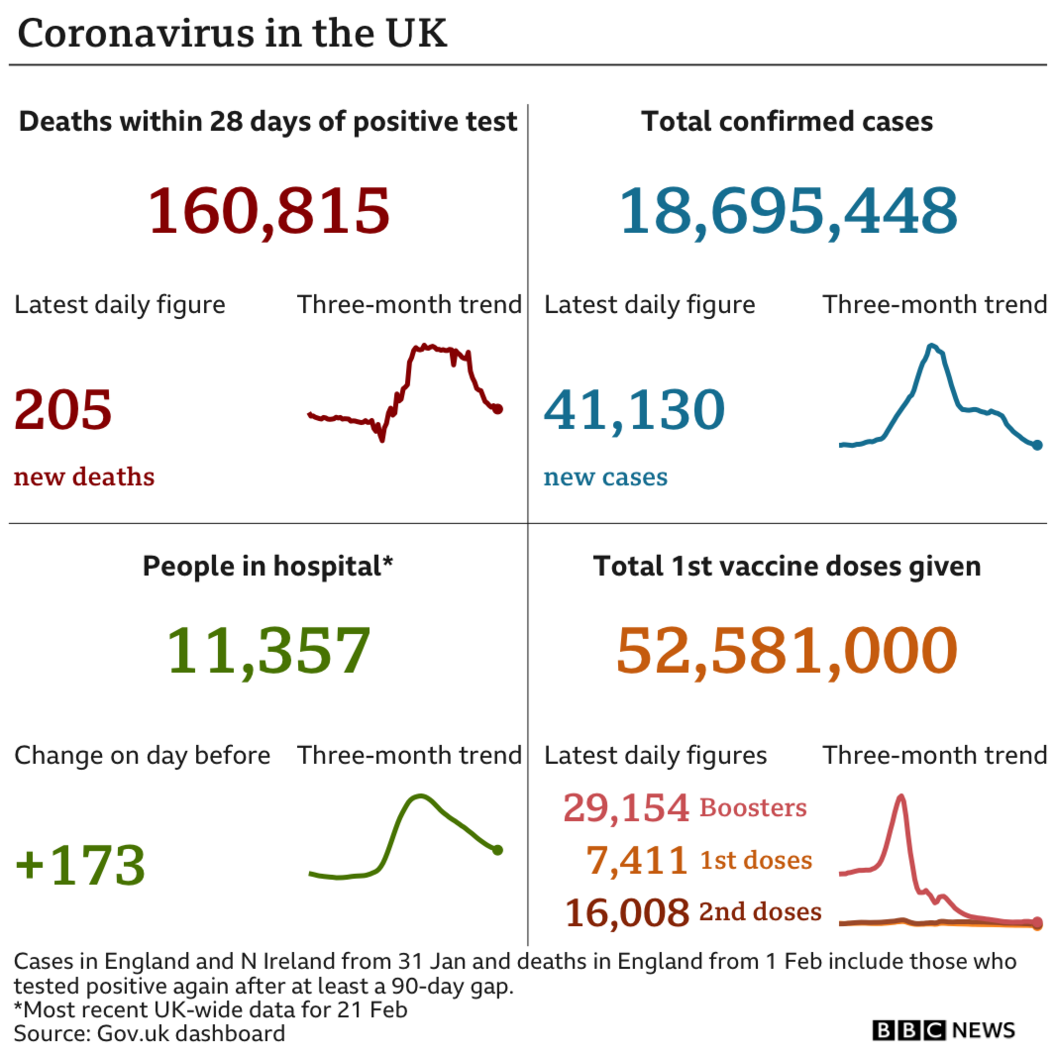

FORBIDDEN AMERICA: Louis Theroux investigates the new far right political movement born out of the internet
KILLING EVE RETURNS: Get a sneak peek at the gripping final series!

- Published22 February 2022
- Published22 February 2022
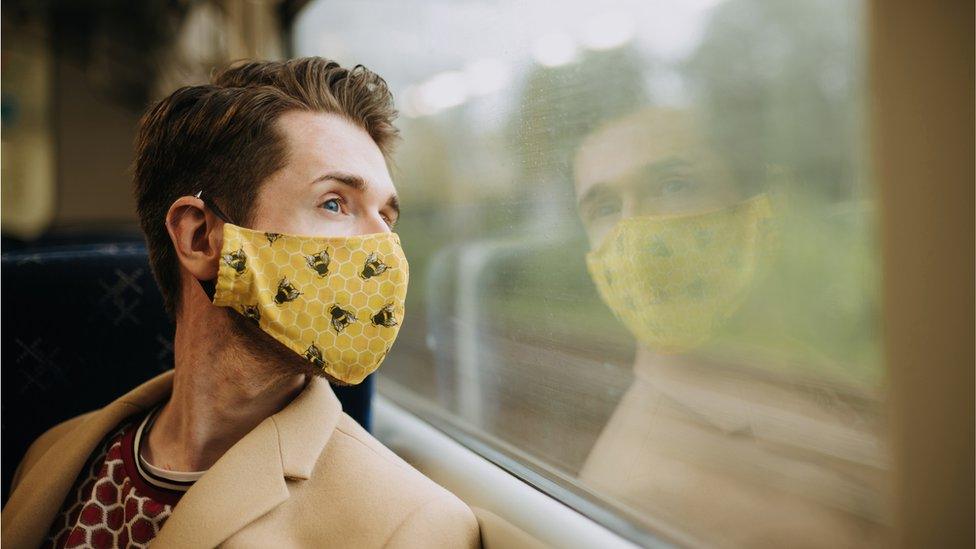
- Published21 February 2022
- Published21 February 2022
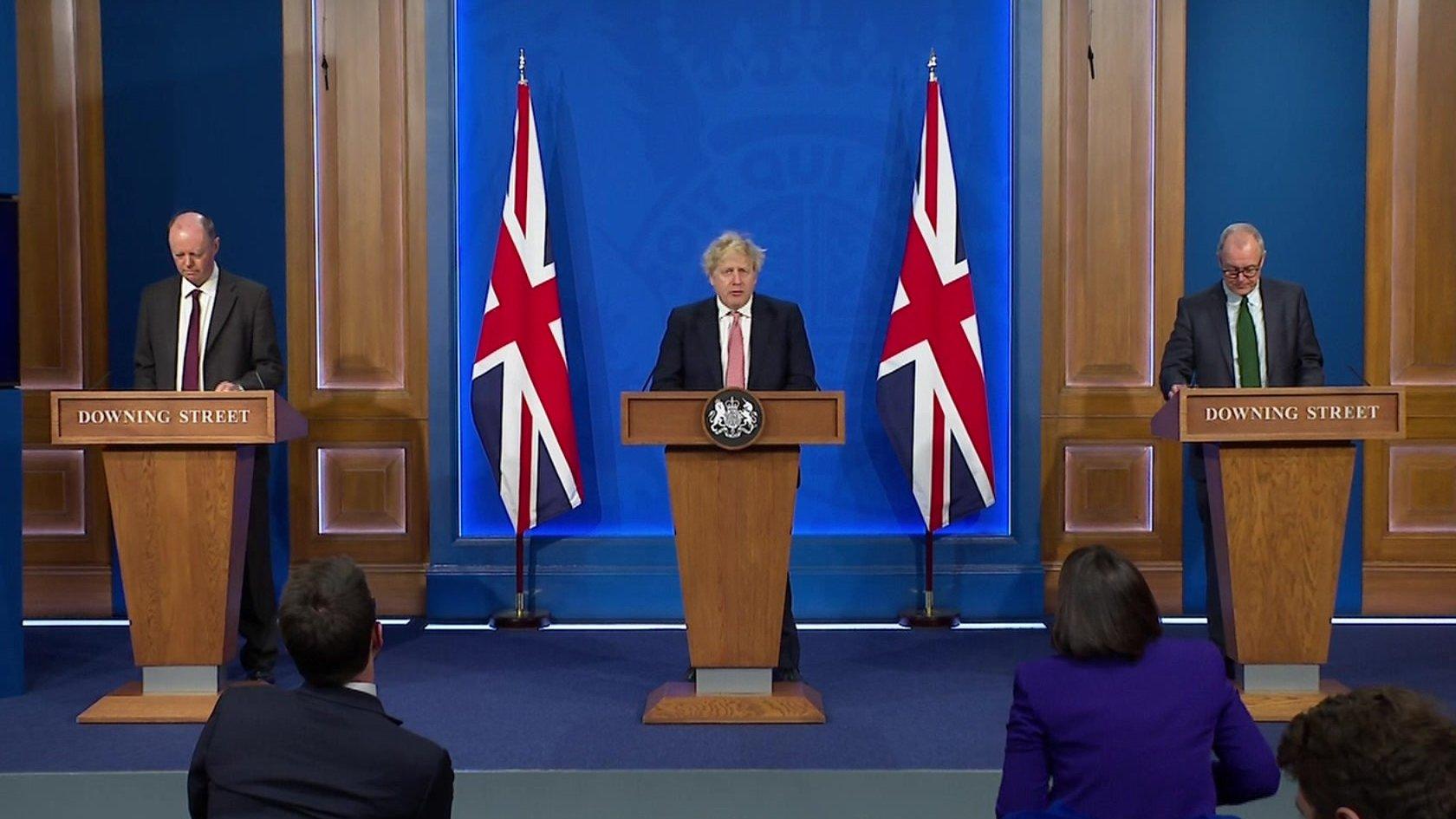
- Published21 February 2022
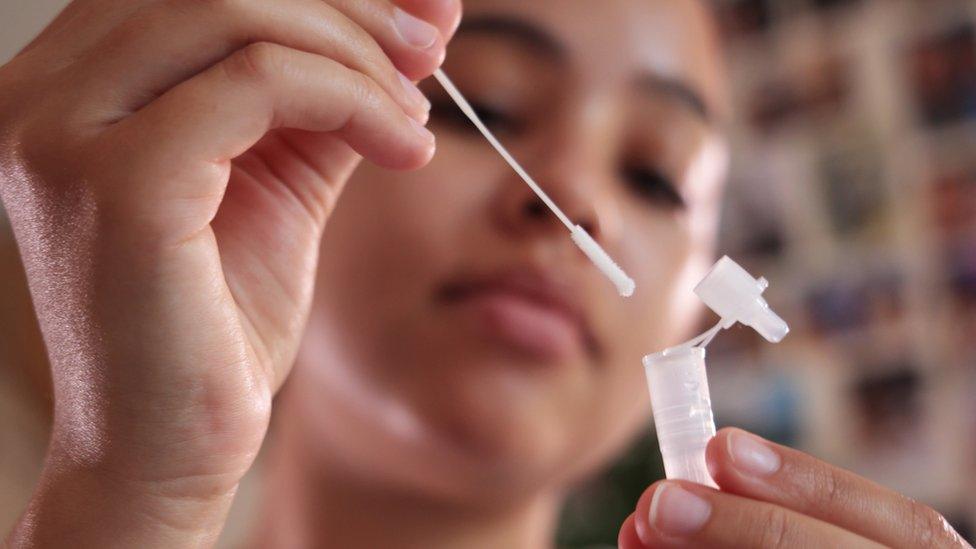
- Published21 February 2022
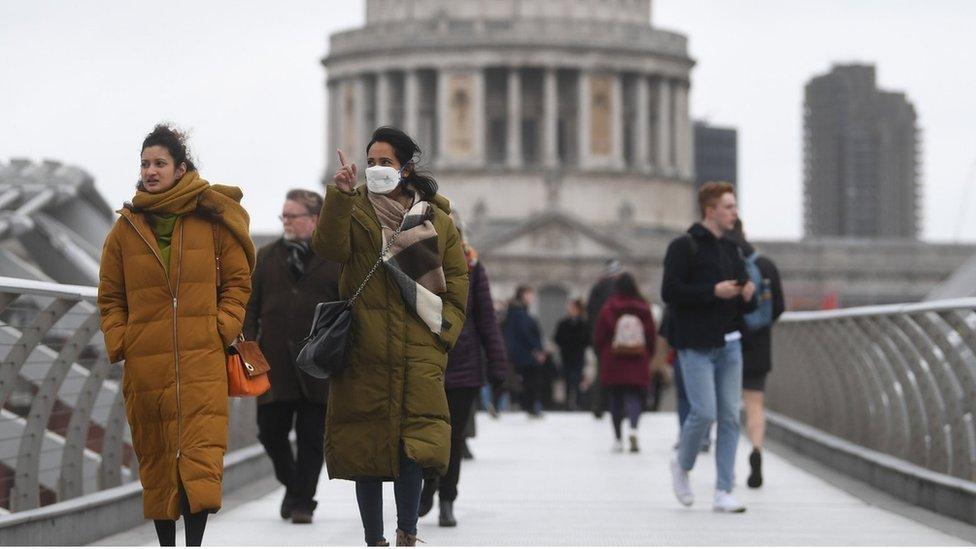
- Published21 February 2022
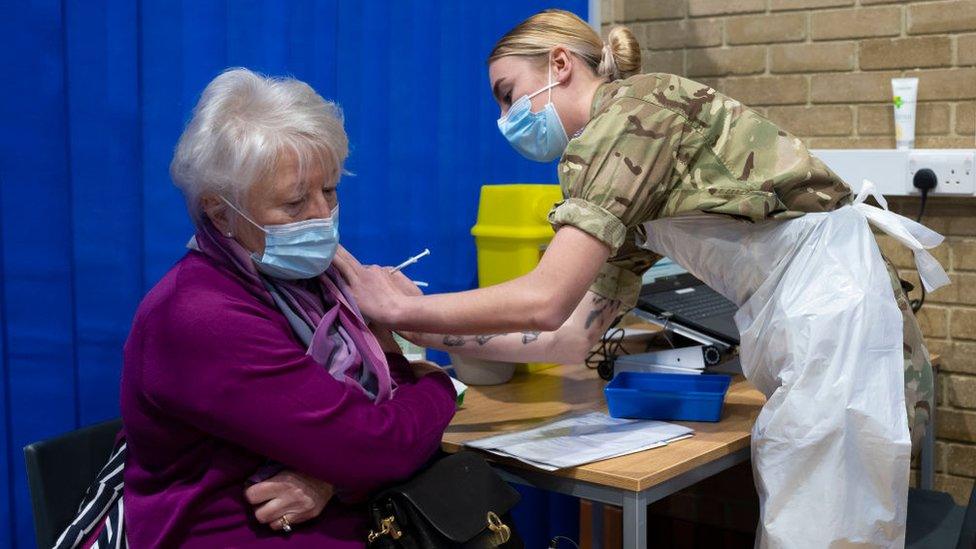
- Published16 February 2022
- Published22 February 2022
